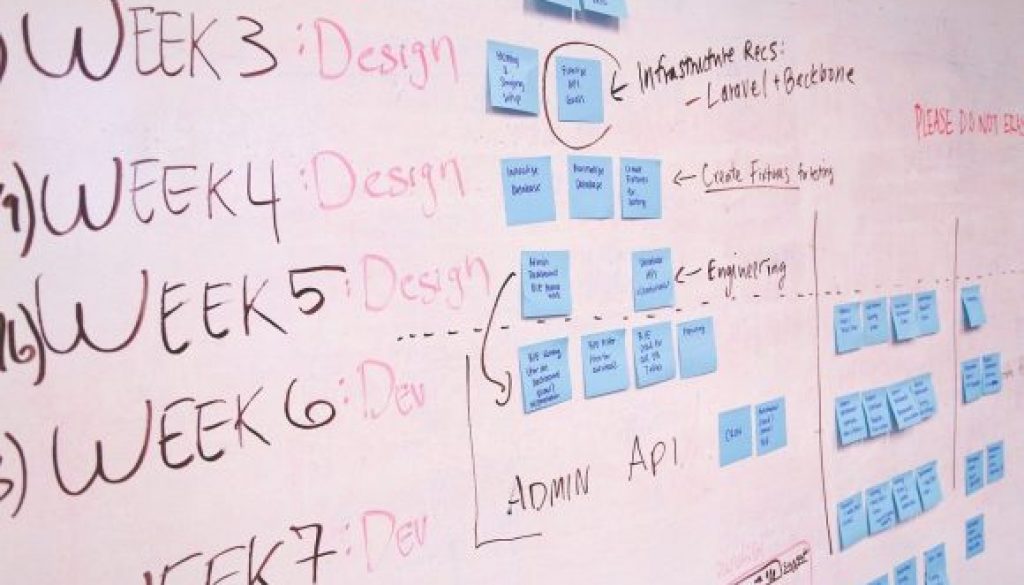Plan Your Success
When you buy a bookcase at someplace like Ikea and take it home to assemble, do you just rip into the box and start pulling out the pieces and parts and begin fastening them together based on how you think the finished piece should look — or do you search for the instructions first so you can read through them, make sure all the parts are there, and then begin assembling the bookcase by following the step-by-step detailed plan which will assuredly lead to your success?
Hopefully you review the instructions first.
It is the surest way to make certain you only have to build it one time (versus building it once the wrong way, disassembling it, and the building it a second time following the directions). Following the carefully laid out plan also means you’ll probably end up with something that looks at least close to the way it is pictured on the box.
Now we agree that following the instructions on a pre-determined plan increases your odds of success.
So, tell me…
The last time you came up with an idea for a project or a product or business you created a written plan for your success and didn’t just “wing it”, right?
Chances are you did not create a success plan.
You may have “thought” about the process and even imagined a few steps you’d have to take — but you probably just dove in rather than waste time on paperwork. If this sounds familiar, answer these four questions:
- Did you complete the project?
- Did it turn out as you imagined?
- Would you consider it a success?
- If you had to do it again, would you have spent a little more time in the planning stage?
My best guess is that most people will answer “No” to at least two of the first three questions, and almost everyone will say “Yes” to the final fourth question (even people who answered “Yes” to all three of the first questions). This is because even if you finished your project, it turned out how you pictured it in your head, and you think it was successful — you still wonder if you results could have been even better with a little more planning.
Why people avoid the planning stage
I think people get intimidate by the process of planning. They think it has to be a formal business plan that you need to hire a lawyer and a team of business consultants to complete, when in fact a plan can be as complex or as simple as you need it to be.
- A checklist can be a plan
- A blocked set of appointments on a calendar can be a plan
- Sticky notes on a wall can be a plan
- A mindmap drawn on an erasable marker-board can be a plan
Find a planning tool that is simple and fun for you to use; a pack of sticky notes and a Sharpie, an online kanban board like Trello, a kanban board that works within your Gmail account like Yanado or Drag, or use simple online business plan template like the ones they have at Bizplan.com.
The primary goal is to find a tool you like and will use.
 Once you decide upon a planning tool, jot down your plan in the simplest steps possible. You can write them down on a single line (writing each step on a sticky note forces you to keep it short and be concise).
Once you decide upon a planning tool, jot down your plan in the simplest steps possible. You can write them down on a single line (writing each step on a sticky note forces you to keep it short and be concise).
After you have your steps, review to make sure you’ve sorted them sequentially. That you’re getting the first steps done first and not pushed off to the end where it could mess up all the work that came before it.
When you have your steps prioritized and in order, you need to add a due date. Decide when the task needs to be completed and add it to a calendar (many of the tools like Trello and Yanado have due date calendars built into them).
After you know when the task needs to be finished, you need to know the who — you have to assign the item to someone who will be responsible for completing it on time. That person might be you, or might be a web designer responsible for creating your landing page, or it might be an accountant who needs to register your company to do business in your state.
Once you review your finished timeline to see if you left anything out (and make any changes as needed), you can get to work on making your project a success because when you plan, everything goes perfectly perfect all the perfect time!
Well… not-so much.
One thing or another will absolutely go wrong without it being anyone’s fault.
- Filing business paperwork might take longer than expected…
- Order of materials could get delayed…
- Other urgent projects could pop-up…
- The country could get shut-down because of some crazy virus…
Anything could go wrong (and anything probably will!), so it’s best to expect the unexpected and plan to deal with changes to your plan. Reschedule and reassign as needed, just make sure you are responding and not reacting.
Is planning your project foolproof?
Don’t be ridiculous. Nothing is foolproof.
But the odds of your project being a success are greatly improved when you start with a plan — even if the final plan you end up with looks nothing like the one you started out with.



